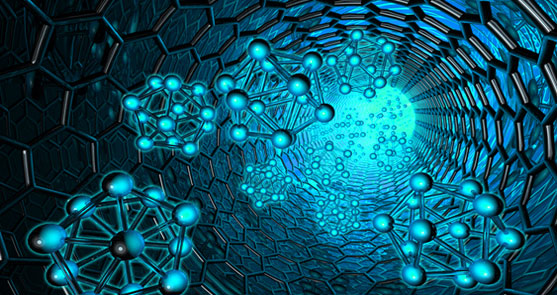Blog Detail


Nanotechnology - One of the Fastest Growing Markets in the World
30-05-2018

What is Nanotechnology?
Nanotechnology can be defined as the science and engineering involved in the design, synthesis, characterization and application of materials and devices whose smallest functional organization in at least one dimension is on the nanometre scale (one-billionth of a meter).
Imagine the possibilities: materials with ten times the strength of steel and only a small fraction of the weight shrinking all the information housed at the Library of Congress into a device the size of a sugar cube -- detecting cancerous tumours when they are only a few cells in size. Some of the research goals may take many years to achieve, which is why it has an important role for the federal government.
Applications of Nanotechnology
As there are many wider applications of nanotechnology, experts have reckoned a list of top 10 nanotechnology application areas such as Energy storage, production, & conversion; Agricultural productivity enhancement; Water treatment & remediation; Disease diagnosis & screening; Drug delivery systems, Food processing & storage; Air pollution & remediation; Construction; Health monitoring; and Vector & pest detection and control.
Other areas of application are textiles, cosmetics & personal care products, electronics & home appliances, defence, etc. All these applications of nanotechnology can be leveraged for social and economic development of the developing countries like India.
A Realistic Market Assessment
- Total worldwide sales revenues for nanotechnology were $11,671.3 million in 2009 and are expected to increase to more than $26,000 Million by 2021, a compound annual growth rate (CAGR) of 11.1%.
- The largest nanotechnology segments in 2009 were Nanomaterials. All Nanomaterials will increase from $9,027.2 million in 2009 to nearly $19,621.7 million in 2018, a compound annual growth rate (CAGR) of 14.7%.
- Sales of Nano tools will experience high growth. This market segment was worth $2,613.1million in 2009 and will increase at a 3.3% compound annual growth rate (CAGR) to reach a value of $6,812.5 million by 2021.
- Sales of Nano devices will experience moderate growth. This market segment was worth $31million in 2009 and will increase at a 45.9% compound annual growth rate (CAGR) to reach a value of $233.7 million by 2020.
- According to the latest report on global nanotechnology market, the industry is estimated to grow at a CAGR of 18.2% between 2016 and 2021.
Nanotechnology is not just the future, it’s already here
Right now, most of the nanotechnologies you come across are incorporated into existing products, making them better. Here is a common example, nanotechnology makes computer chips smaller and faster, and golf clubs stronger and lighter. But future nanotechnologies will address issues of global importance, such as energy, medicine, water, and food. Of course, we don’t know if nanotechnology will really change the world.
Right now, most nanotechnology products are simply improved versions of things we already have: stain-resistant pants, smoother cosmetics, and antimicrobial socks. But research is underway to develop nanotechnologies that could revolutionize life all over the globe, by fighting disease, generating clean energy, improving food supplies, and purifying water.
At CIIMS (Deemed-to-be University) we provide B.Tech and M.Tech programs in Nanotechnology with excellence in infrastructure, best faculty and rigorous course structure.